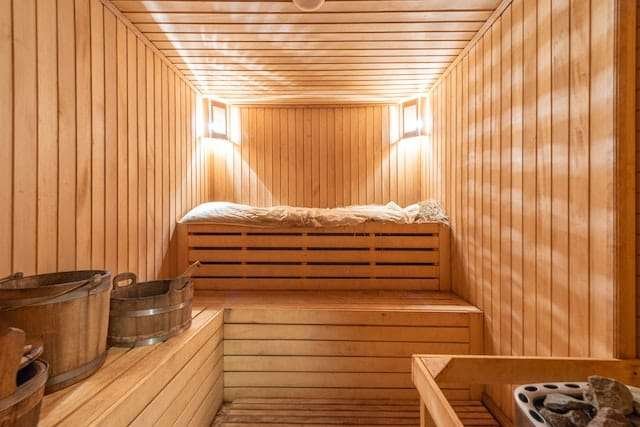Having an electrician run the new electrical connections for sauna heaters is a good idea. This ensures that the National Electrical Code is followed and the installation is safe.
1. Controls:
Home saunas are a popular addition to new and old homes alike. Whether they are used for detoxification, relaxation, or the treatment of sore muscles and joints, home saunas provide unparalleled health benefits.
An effective sauna experience depends on optimum heating within the sauna enclosure. That is why it’s crucial to choose suitable residential sauna heaters.
When deciding on an electric sauna heater, look for high-quality options with state-of-the-art controls. Designer B sauna heaters, for example, offer a built-in control panel that saves you money versus buying one separately.
2. Safety:
Safety is crucial when you purchasing sauna heater for your custom sauna rooms. This is especially important for gray-market European units that don’t meet North American safety standards.
These European sauna heaters often use 400-volt three-phase power, which is different from the 240-volt single-phase power available in North America. This creates a fire risk due to open contactors, junction boxes, and loose wire connections.
Homeowners must know that they may need to upgrade their electrical capacity to wire a new sauna. This is something a licensed electrician can help with. It’s also best to avoid buying a sauna heater with frequent breaker trips, as this can signal an overloaded circuit. This can lead to expensive repair bills.
3. Size:
Saunas are sold in a wide range of sizes. The size you choose will impact your overall cost and the comfort of your sauna bathing experience. A smaller sauna costs less, but you should limit the number of people who can use it simultaneously.
It’s important to match your sauna heater with the size of the room you’re putting it in. Larger rooms require larger heaters to keep the space warm and cozy.
Similarly, electric sauna heaters also need to be properly sized for the room. A sauna heater that is too small will work harder to reach the desired temperature, and a bigger heater will cost more to operate.
4. Stone Capacity:
When selecting a sauna heater, consider its stone capacity and how many stones your desired sauna requires. Different types of stones react differently to water splashing onto them, affecting heat generation. Some heaters may require several hundred pounds of rocks.
Rounded olivine diabase stones are recommended because they look better and offer more surface area for the stones to absorb the water’s heat. This results in softer steam and more effective heat release. It is also essential to check your home’s electrical capacity before installing a residential sauna heater.
Most modern homes have more than enough capacity to run a new sauna, but older houses might not. This could mean upgrading your home’s breaker box, which is costly and costly.
5. Power:
Electric sauna heaters require a 240-volt connection to function. If your home sauna is located in a room or garage that doesn’t have this type of outlet, you’ll need to hire an electrician to upgrade the wiring.
The size of your sauna determines how much power it needs to operate. A general rule of thumb is 1 kW per 50 cubic feet of space. You can find online calculators to help you determine the right-sized heater for your space.
A well-insulated sauna helps reduce electricity consumption. The insulated rocks retain heat and release it long after the sauna is turned off. This reduces energy costs by reducing the time the heater needs to run to heat the stones back up to temperature.









